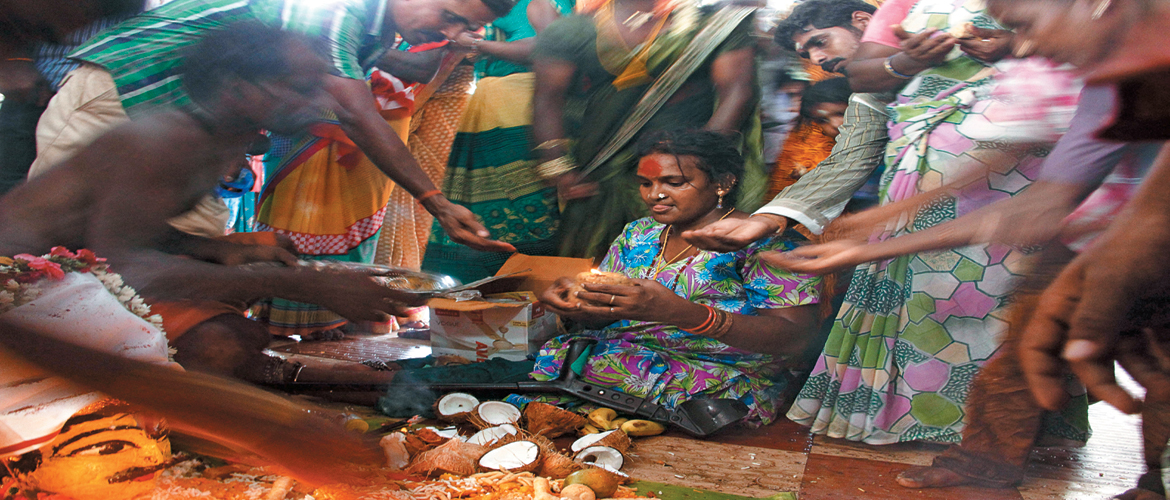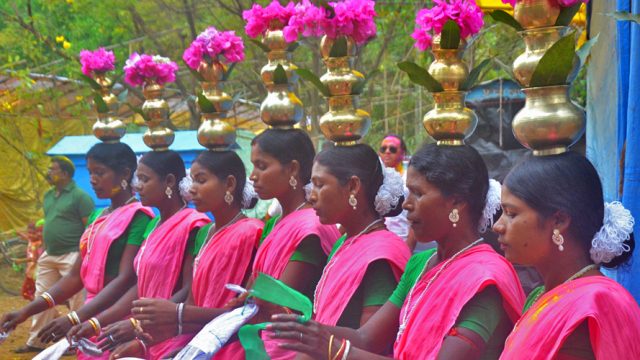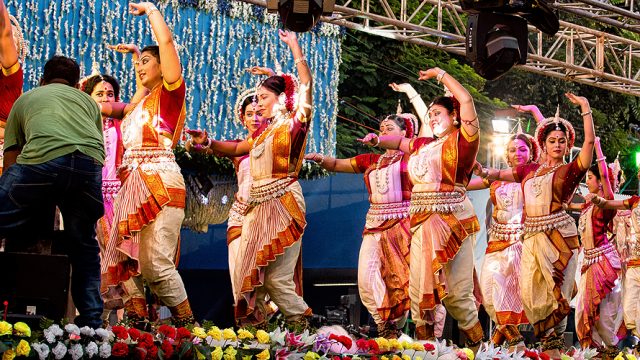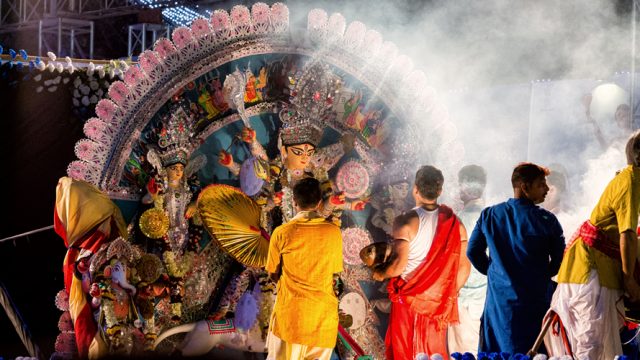India has plenty of festivals that celebrate every conceivable myth, occasion and personality. So, it
The festival is said to be a re-enactment of a legend from the Sanskrit epic Mahabharata. Aravan, a son of the great warrior Arjuna, agreed to be presented as a sacrifice to Goddess Kali so that the Pandavas would win the war over the Kauravas. However, before his death, he wanted to get married. As no woman would agree to wed a man who was about to die, Lord Krishna assumed the form of Mohini and married him. The next day, Aravan was sacrificed and Kali lapped up his blood.
The Koothavandar Temple in Koovagam is dedicated to an incarnation of Aravan. Aravanis visit the temple to replicate his one-day-long marriage. On the 17th day of the festival, the priests of the temple adorn the aravanis with thaalis (bridal necklaces) and conduct rituals to sanctify their marriage with the deity. This is followed by a night of joyous celebration. The following day commemorates the death of Aravan – the ‘widowed’ aravanis tear off their thaalis and remove their ornaments and flowers as a part of the mourning rituals. During the first 16 days, numerous events are held, such as beauty pageants and music and dance contests. NGOs conduct HIV/ AIDS awareness programmes and seminars on health and sexuality. The festival is also known for being a hub of sex work.
Aravanis and hijras from across the country congregate in Koovagam during the fair. They mostly travel in groups and have a tightly-knit clan system headed by a mummy or amma, the grand matriarch. During the festival, they live on the verandahs of the villagers’ houses or in lodges at Viluppuram, the headquarters of the district, which is about an hour’s drive away.
For many transgender women, the festival is extremely significant as this is their only chance to get married – an event they might not be able to experience due to the prejudices they encounter. Across the country, transgender people are rebuked due to their alternate sexuality. While trans communities are natural performers, most have no recourse but to turn to sex work for an income. Although some states, most notably Tamil Nadu, have legislated measures for transgender inclusion, much remains to be done. In this bleak scenario, it is festivals like Koovagam that gives them a chance to celebrate their difference and revel in their identity.
Where to Stay & Eat
There are a few basic lodges in Viluppuram. Puducherry, 39km away, has more options.
The Information
Event Organiser
Arulmigu Kailasanadhar Temple
Thiru.V.Ka Street
Viluppuram. Cell: 09944238917
W koothandavartemple.tnhrce.in
STD code 0821
GETTING THERE
Air Nearest airport: Chennai (177km/ 4hrs). Taxis cost ₹3,000 till Viluppuram/ Koovagam. Contact Fast Track taxis (Tel: 044-60006000) or Chennai Airport Call Taxi (Tel: 42624502)
Rail Viluppuram Railway Station (30km) is connected to all major cities
Road Two private bus operators serve the stretch between Chennai and Viluppuram – Parveen Travels (Tel: 28193538, Cell: 09840962103) and Kallada Travels (Chennai Central Cell: 09361635500; Villupuram Cell: 09364245500). Direct buses ply from Panruti and Manapattu villages to Koovagam
Koovagam Festival
Religious Festival
Tamil Nadu





